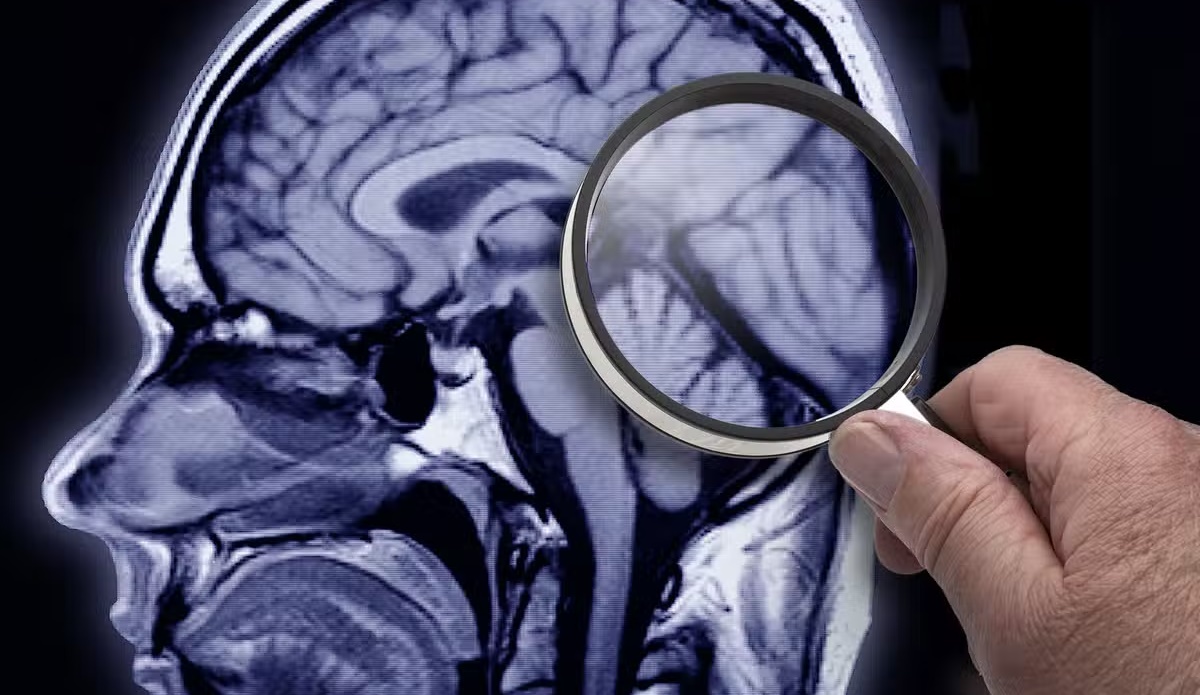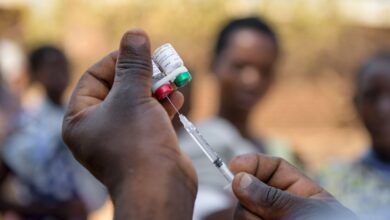Sensor developed to detect Alzheimer’s 17 years ago
German researchers develop sensor that detects Alzheimer's 17 years before it breaks out

For many people, dementia is a horror of old age. However, some of the factors that promote later disease in those affected are still unclear. A new test could now diagnose the disease years in advance and prepare those affected for treatment in good time.
Around 1.6 million Germans have dementia. So far, there is no cure for the disease, which manifests itself in the form of memory loss, among other things. With targeted therapies, however, the quality of life of many sufferers can be improved.
Since dementia is genetically inheritable, many more people could later be diagnosed with the neurodegenerative disease. But there is now hope for these people: A research team from the Ruhr University Bochum has developed a new sensor that should enable early detection of Alzheimer’s up to 17 years in advance. The test works with a so-called immuno-infrared sensor, which can detect the first signs in the blood of those affected. The sensor was developed as part of a long-term study. By using infrared light, he can determine the proportion of proteins responsible for the development of Alzheimer’s.
Alzheimer’s screening test detects markers in the blood
According to the study published in the journal Alzheimer’s & Dementia, some proteins in the brain’s central nervous system misfold. According to a previous press release, these proteins clump together and are deposited as amyloid plaques in the brain. This means that some proteins are unable to form the right structures – and therefore become toxic.
The development of diseases such as Alzheimer’s or Parkinson’s is probably related to such processes. This is what researchers found in the Europe-wide NEUROFOLD study. However, there are currently no concrete options for preventing or curing these misfoldings.
The test by the Bochum research team can detect such proteins in the blood in good time, even before the disease breaks out. Healthy and toxic proteins react differently to the infrared rays used in the test. The sensor can detect this difference and use the exact ratio to determine whether dementia is present or not.
“Our goal is to determine the risk of later developing Alzheimer’s dementia with a simple blood test before the toxic plaques can form in the brain – so that therapy can start in good time,” says Klaus Gerwert, head of the research project and Professor at the Ruhr University Bochum according to a press release.
Developed by a German research team
The team developed the test during the so-called ESTHER study, a long-term study in Saarland. For more than 20 years, extensive investigations have been carried out into how to prevent or treat cancer, cardiovascular diseases and neurodegenerative diseases. Between 2000 and 2002, 10,000 women and men between the ages of 50 and 74 gave blood samples to their GPs during regular check-ups.
The Bochum team then selected a total of 68 people who had been diagnosed with Alzheimer’s during the 17-year follow-up. They compared their blood samples with those of 240 control persons without a diagnosis. During these investigations, corresponding markers were found in the blood that indicate Alzheimer’s years in advance.
This method is therefore not completely new: Similar studies on the early detection of Parkinson’s have also proven this disease through the existence of biomarkers.
Working closely with the German Cancer Research Center (DKFZ) in Heidelberg, Klaus Gerwert’s team found that it was possible to detect a specific protein 17 years in advance, i.e. while those affected were still symptom-free.
New possibilities for early treatment
Timely diagnosis is essential to start effective therapies and preventive measures against the disease. This includes a mentally and physically active lifestyle at an early age.
“With the misfolding test, we want to establish a precautionary measure for older people and determine their risk of developing Alzheimer’s disease,” says Gerwert. The early detection technology is already patented. Together with the start-up “BetaSense” founded from the research project, the immuno-infrared sensor is to be brought onto the market as a diagnostic device for laboratories.
The sensor itself is still in the development phase. A market launch is therefore still in the future. However, according to Gerwert, the hope is that the disease can still be stopped in a symptom-free state – before damage occurs.
Medical treatment has not been sufficient so far
A diagnosis by means of a blood test is particularly important because there are still many uncertainties when it comes to drug treatments.
The drug “Aduhelm”, which was approved by the American Food and Drug Administration in the spring, has been shown to be able to break down those heavily modified proteins. But it has to be applied early and also has little effect on symptoms such as memory loss or disorientation. Several studies designed to further investigate this effect have been discontinued. The drug has therefore not yet been approved in Europe.
“Until now, a series of clinical trials for Alzheimer’s drugs have apparently failed due to the late timing of the therapeutic approaches, because the established plaque tests used in the trials obviously do not indicate the disease in good time,” says Gerwert. “Apparently the plaques, once deposited, produce irreversible damage in the brain.”
This is where the immuno-infrared test could help: If Alzheimer’s disease is detected early, drug treatment would also be more successful. “The success of further drug studies will depend on the study participants being correctly characterized and not showing any irreversible damage when they enter the study,” explains Léon Beyer, first author and doctoral student in Klaus Gerwert’s team.
Crucial for those affected: prevention
Despite a lack of treatment options, the actual risk of disease can be demonstrably reduced at a young age. According to the “Alzheimer Research Initiative e.V.”, the most important preventive measures include:
Regular exercise: According to a study by the University of Zurich, regular exercise can reduce the risk of later developing dementia.
Brain jogging: Sudoku or crossword puzzles train short-term memory. According to a DKZF study, people who report short-term memory problems have a higher risk of developing dementia.
Society: Depression that arises from loneliness, for example, can increase the risk of dementia.
a generally balanced diet that is as unprocessed as possible: a balanced level of omega-3 fatty acids can reduce the risk of developing dementia by almost 49 percent.
When symptoms are already present
According to ” Welt “, dementia expert Oliver Peters advises asking yourself whether the memory problems are limiting your quality of life. If the forgetfulness leads to problems at work, for example, or to fear that it will get worse, then you should seek help. This applies doubly to those who have already developed dementia in their immediate family.
Good contact points are institutions with memory consultations that can identify dementia diseases early and treat them. Trained personnel can carry out appropriate tests and exercises there in order to make a diagnosis. This also includes making sure that there is no dementia at all.
Myths about Alzheimer’s: Does too much aluminum trigger Alzheimer’s?
Pharma giant Pfizer pulls out of research into Alzheimer’s


